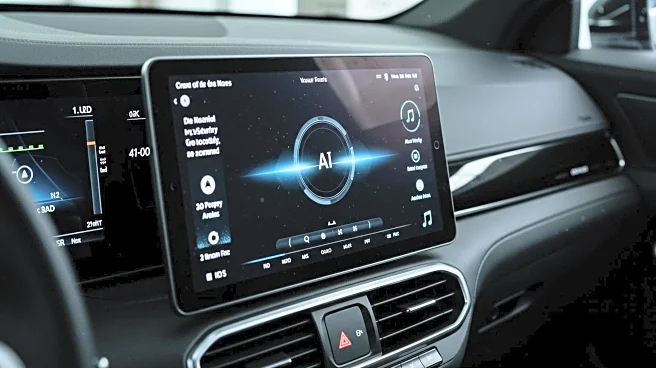What's Happening?
The J.D. Power 2025 U.S. Tech Experience Index (TXI) Study reveals that AI-based technologies are increasingly integrated into vehicles to improve driver experience. The study, now in its tenth year, includes a new category focusing on seven AI technologies that enhance driver experience by anticipating needs. Smart technologies such as smart ignition and climate control rank high for customer satisfaction and low problem rates. However, challenges remain, particularly with the complexity of infotainment systems and recognition technologies. The study also notes the growing interest in in-vehicle payment systems, with 62% of owners expressing a desire for this feature.
Why It's Important?
The integration of AI technologies in vehicles represents a significant shift in the automotive industry, aiming to enhance user experience and vehicle quality. These advancements could lead to increased customer satisfaction and loyalty, impacting automakers' market competitiveness. However, the complexity of these systems poses challenges that need addressing to prevent usability issues. The interest in in-vehicle payment systems indicates a potential new revenue stream for automakers, aligning with consumer demand for convenience and efficiency.
What's Next?
Automakers are expected to continue developing AI technologies to address current challenges and maximize their effectiveness. The focus will likely be on improving the usability of infotainment systems and recognition technologies to enhance the overall driving experience. As in-vehicle payment systems gain traction, automakers may explore partnerships with financial institutions to expand offerings and streamline processes.
Beyond the Headlines
The ethical implications of AI in vehicles, such as privacy concerns related to biometric authentication and driver monitoring, may become more prominent as these technologies evolve. Additionally, the long-term impact on vehicle design and consumer expectations could lead to shifts in industry standards and regulatory frameworks.









